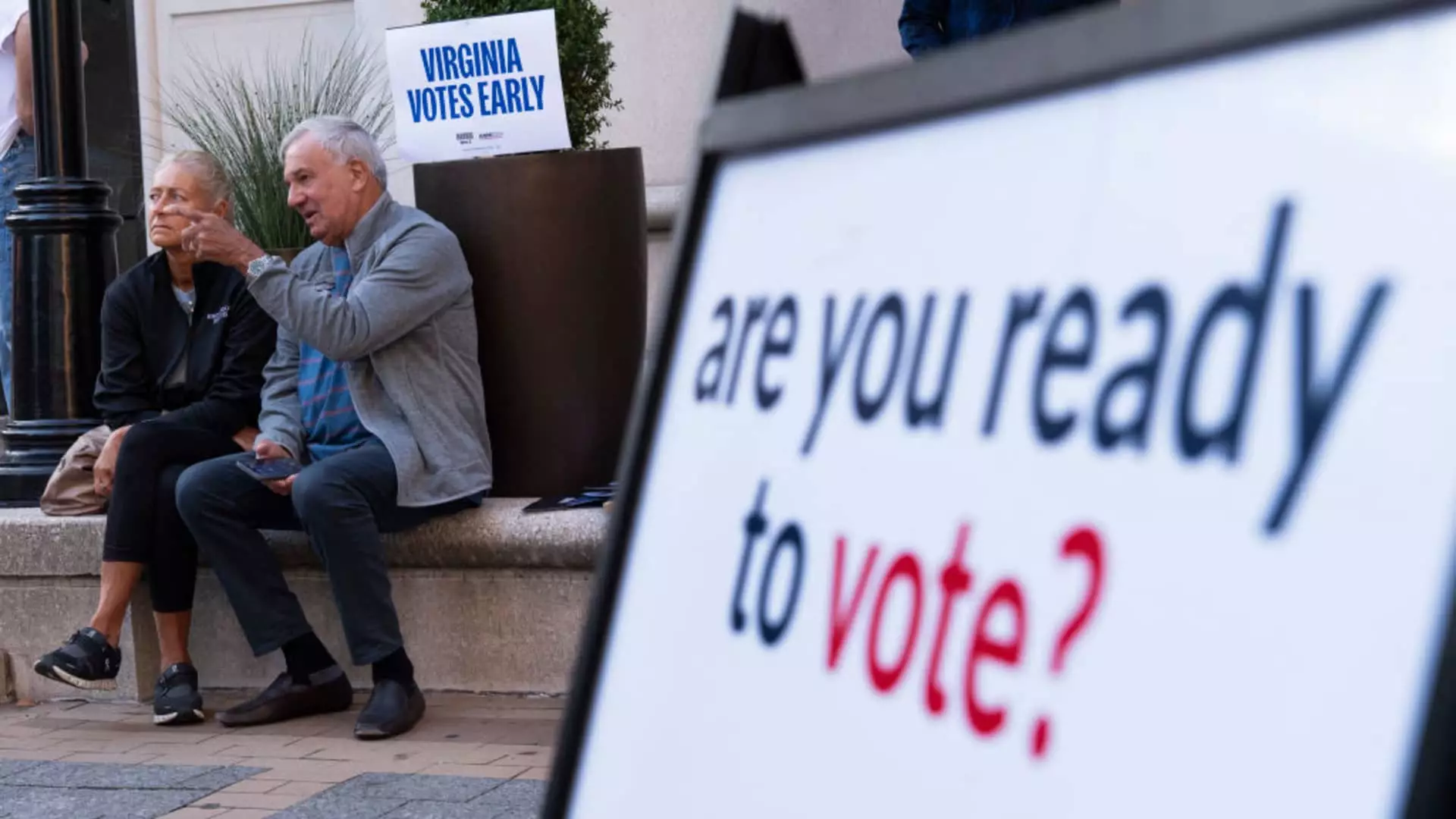The upcoming November elections are stirring a potent blend of enthusiasm and anxiety among American voters. As political tensions simmer, an unanticipated aspect of the electoral heat is how it influences financial choices. Many Americans are pausing significant financial decisions—ranging from vacations and home remodeling to car purchases—attributable to uncertainties surrounding the election results. In a recent survey by the CFP Board, a staggering 63% of respondents indicated that they would defer major financial commitments until after the elections, illustrating a trend where political sentiment spills over into personal finance.
The prevailing attitude that financial decisions must be put on hold until the election is a misstep, say experts in the financial advisory field. Competition between candidates often ignites speculation regarding changes in fiscal policies, which can lead to a paralyzing effect on finance-related decisions among individuals. However, this mindset can be detrimental to one’s financial health. Michael Liersch, head of advice and planning at Wells Fargo, presents an alternative perspective, urging individuals to assess their financial strategies independently of electoral outcomes. He questions the rationale behind waiting, simply asking, “Would Candidate A or Candidate B’s victory alter your decision?”
The fundamental issue here is that many people allow external factors—like elections—to dictate their financial activities rather than concentrating on their individual financial goals. Financial goals should be deliberated in a vacuum, taking precedence over potential policy shifts that may or may not come to fruition in the future.
A solid financial plan is paramount, and this should be the guiding star for any major purchase or investment rather than political occurrences. Financial advisors stress the importance of focusing on personal plans and priorities. Liz Miller, the founder and president of Summit Place Financial Advisors, often encourages clients to revisit their financial blueprint, particularly when they have thoughts of postponing significant expenditures. In many instances, clients realize that their initial hesitation was unwarranted.
Furthermore, Miller proposes a strategic framework where individuals identify best-case, worst-case, and average scenarios. By mapping out these various outcomes, you stand a better chance of making an informed decision that aligns with your overall financial health. This proactive approach is crucial, given the uncertainty that elections bring.
One of the paramount concerns amongst respondents in an Edelman Financial Engines survey was the potential reduction in Social Security benefits, a worry that 81% expressed. The looming possibility of the Social Security trust fund running dry by 2033 fuels this anxiety, as it may lead to a grim reality where only 79% of benefits could be paid out. Therefore, taking steps to gain clarity on personal situations regarding Social Security becomes imperative. Individuals should evaluate their expected benefits, implement savings strategies, and contemplate how potential future shortfalls could be addressed through budgeting adjustments.
Even amid the unsettling political backdrop, experts advocate taking decisive actions—like reducing debts, building emergency funds, and sticking steadfastly to investment strategies. These conservative financial practices lay a strong foundation that can weather fluctuations prompted by electoral changes. Stacy Francis, a certified financial planner, emphasizes the importance of feeling financially secure amid today’s uncertainties. Clients are encouraged to refine their financial plans with long-term aspirations in mind, even considering options like Roth conversions ahead of prospective tax changes.
Proactive Steps for Financial Stability
Election spheres often generate chatter about capital gains taxes, leading many investors to be on edge about potential market repercussions depending on who wins. Nevertheless, financial advisors argue that, regardless of political shifts, the current market climate—marked by double-digit gains—creates an opportune moment to evaluate investment positions. Miller asserts that seeking to capitalize on these gains now, while tax rates remain stable, might be more beneficial than waiting for uncertain outcomes.
Ultimately, the question every individual should ask themselves is whether delaying important financial decisions due to election outcomes serves any true benefit. Far from being a reason to stall, the present landscape might offer unique opportunities to fine-tune financial strategies and make proactive decisions that will stand strong regardless of who takes office.
In an era of increasing polarization and uncertainty, taking charge of one’s financial wellbeing is not just prudent; it is essential. By focusing on personal finance goals and making educated, timely decisions, individuals can navigate the turbulent waters of an election year with greater confidence and stability.

